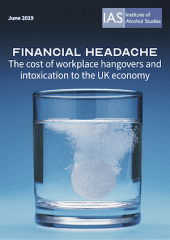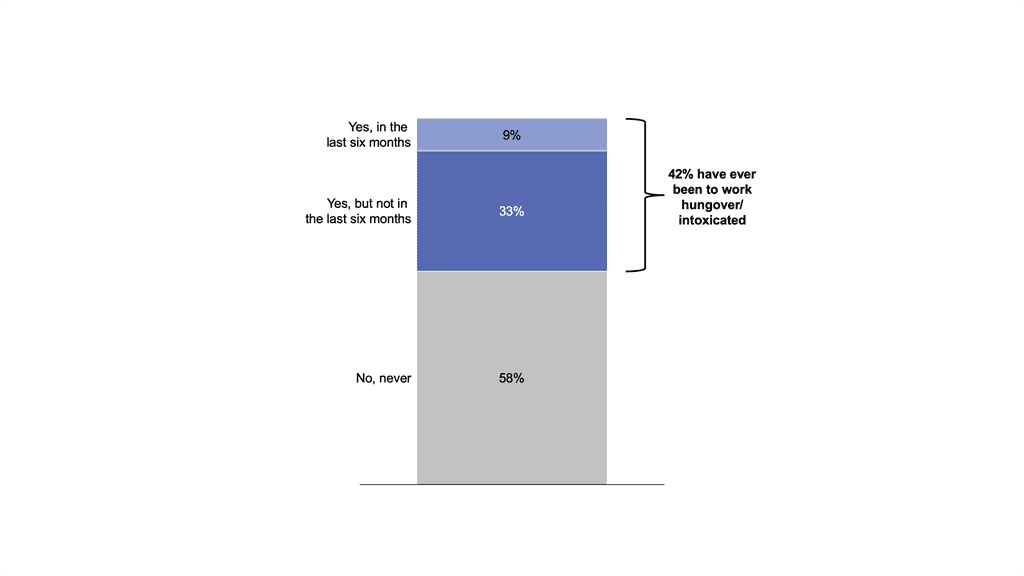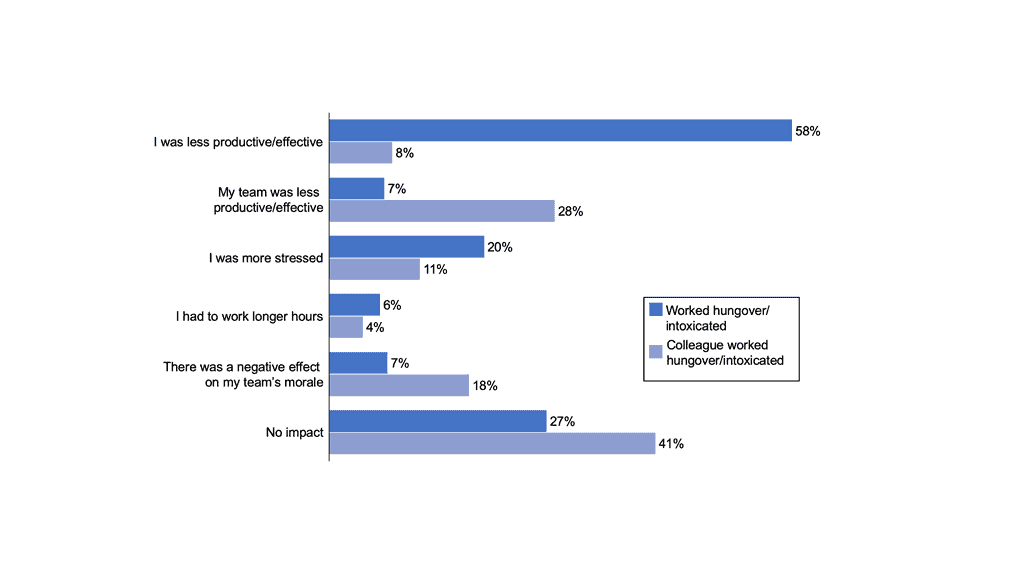
I have written before about the tendency to overestimate the positive contribution of alcohol to the economy. Yes, the alcohol industry creates jobs, but if alcohol consumption fell, the money currently spent on drink would be redirected to other sectors of the economy. As the Fraser of Allander Institute found last year, an increase in alcohol taxes with the revenue reinvested in public services would actually lead to higher employment.
It also seems to be the case that we underestimate the negative economic effects of drinking. The UK Government’s official estimate suggests that alcohol costs the British economy £7.3 billion a year. Yet this figure is almost 10 years out of date (it relates to 2009/10), and it is based on an evidence review carried out by the government over 15 years ago. It comprises three elements: the loss of working age people from the labour force due to premature death, higher unemployment among heavy drinkers and higher rates of sickness absence due to alcohol consumption.
What the official estimate leaves out, due to a lack of robust data, is presenteeism: the cost to the economy of workers who make it in to work, but are less productive once they get there due to their drinking. One of the main causes of alcohol-related presenteeism is people working hungover or intoxicated, so we decided to try and explore how common this is, and to try and put a number on its cost to the economy.
We surveyed 3,400 British workers and found that 42% had ever been to work hungover or under the influence of alcohol. 9% had done so in the past six months. The average annual number of work days each person spent drunk or hungover in our survey was 0.6-0.7, implying that 75,000-89,000 workers are hungover or intoxicated on any given work day.

Have you ever been to work hungover or under the influence of alcohol? |
We found that alcohol affects workplace productivity across all parts of the country, in all sectors and among workers of all backgrounds. In general, men, higher earners and full time workers were all more likely to have gone to work hungover or under the influence. It is particularly common in hospitality and leisure, where 52% of workers have ever been to work hungover or under the influence, and 15% in the last six months. The retail and construction sectors also have above average levels of impairment due to drinking. Yet even in education and health and social care, over 30% of workers have worked while hungover or intoxicated.
Most respondents believed that alcohol-related presenteeism has negative effects on their work. 58% of people who had worked hungover or intoxicated said that it reduced their productivity or effectiveness and 20% that it increased their stress. Moreover, the impact is felt beyond the drinker themselves. Of those who believed that one of their colleagues had come to work hungover or intoxicated, 28% believed it reduced their team’s productivity or effectiveness, and 18% believed that it weakened their team’s morale.

Impact of respondent’s/colleague’s working hungover or intoxicated |
Asked to rate their work performance while drunk or hungover, on average respondents said they were 39% less effective than normal. Based on average employment costs and how frequently such occasions such occur, we calculate that reduced workplace productivity due to hangovers and intoxication cost the UK economy between £1.2 billion and £1.4 billion a year. If we add this to the UK Government’s £7.3 billion figure, it implies that alcohol costs the UK economy between £8.5 billion and £8.7 billion. That is, once we account for the impact of workplace hangovers and intoxication, alcohol’s cost to the economy rises by almost 20%.
Of course, that assumes that the £7.3 billion figure remains accurate, which is doubtful given how old it is. In 2015, the government stated that it had ‘no plans to commission a further review of costs’, and has shown no interest in the issue since. Yet without reliable data we cannot have an informed debate, based on a clear understanding of the economic dimensions of alcohol policy. Hopefully our survey adds to this picture, by quantifying the impact of workplace hangovers and intoxication. However, it needs to be complemented by a broader program of research, reviewing the overall costs of alcohol to the economy and wider society.
Written by Aveek Bhattacharya, policy analyst for the Institute of Alcohol Studies.
All IAS Blogposts are published with the permission of the author. The views expressed are solely the author’s own and do not necessarily represent the views of the Institute of Alcohol Studies.
